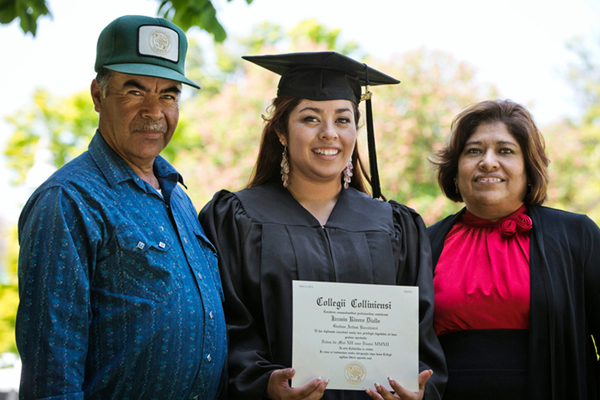- La Feria Community Holds Succesful Business Mixer Event
- Little Nashville to Take Place in Downtown Mercedes
- Lions Basketball Captures District Gold
- La Feria ISD Students Compete in Regional Chess Tournament
- Lions End First Half of 32-4A on a High Note
- La Feria ISD Held Another Successful Parent Conference
- Strong Appearance for Lions at Hidalgo Power Meet
- LFECHS Students Get to Meet Local Actress
- Students Participate in Marine Biology Camp
- Two LFECHS Students Qualify for All-State Band
Study: Latinos Lag Behind Others in Earning College Degrees
- Updated: October 20, 2017

A new study shows that while more Latinos are earning college degrees, they still fall behind white and African American students in educational attainment. Photo: HillStreet/GettyImages
by Mark Richardson
SAN ANTONIO, Texas – Despite progress in recent years, earning a college degree remains a major challenge for Latinos both in Texas and across the country.
A new study out Wednesday from the Georgetown University Center on Education and the Workforce finds that only 21 percent of Latinos have a bachelor’s degree compared to 32 percent of African-Americans and 45 percent of whites.
And in Texas, only 14 percent of Latinos have an undergraduate degree or higher.
Anthony Carnevale, director of the Georgetown Center and the report’s lead author, says the study shows that for Latinos, education is the barrier to a better life, not hard work.
“The first generations made their money by working hard in jobs that don’t require much more than high school,” he states. “That leveraged them into a position where the next generation can move on to college and that really is where the progress is going to have to come. ”
Carnevale says that while Latinos are running faster in the education race, they are falling farther behind other ethnic groups.
Since 1992, the growth in the number of Latinos who earn college degrees is well below that of whites and African-Americans.
And the study shows that few of them – just 15 percent – are enrolled in top tier colleges.
Carnevale says one problem is that while Latino high school graduation rates are up, and thousands have test scores that could get them into top colleges in America, many of them simply do not go.
“They’ve done their part,” he states. “The issue is whether or not we will have the kinds of supports that are required for lower-income minority families to make that leap into the college ranks, especially at the B.A. level.”
Carnevale says as Latinos get more post-secondary education, their earnings increase and the pay gap begins to close. But they are not yet getting paid the same as others.
“They’re not getting the same earnings for the same degrees as whites do,” he stresses. “That is irrespective of what major Latinos enroll in, what college they enroll in, whether they graduate or not, in the end they always make less than whites. ”
Carnevale says despite the statistics, there is cause for optimism. The study finds that with proper support, Latinos can make significant strides in closing the gap in both educational and economic success.


